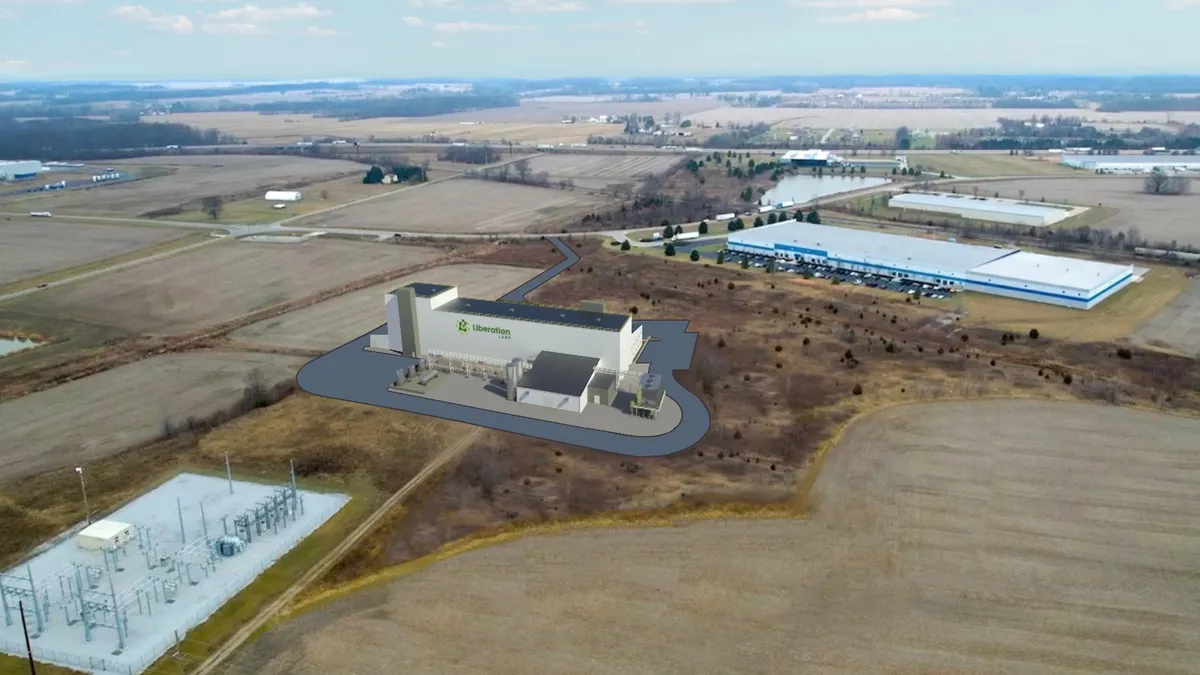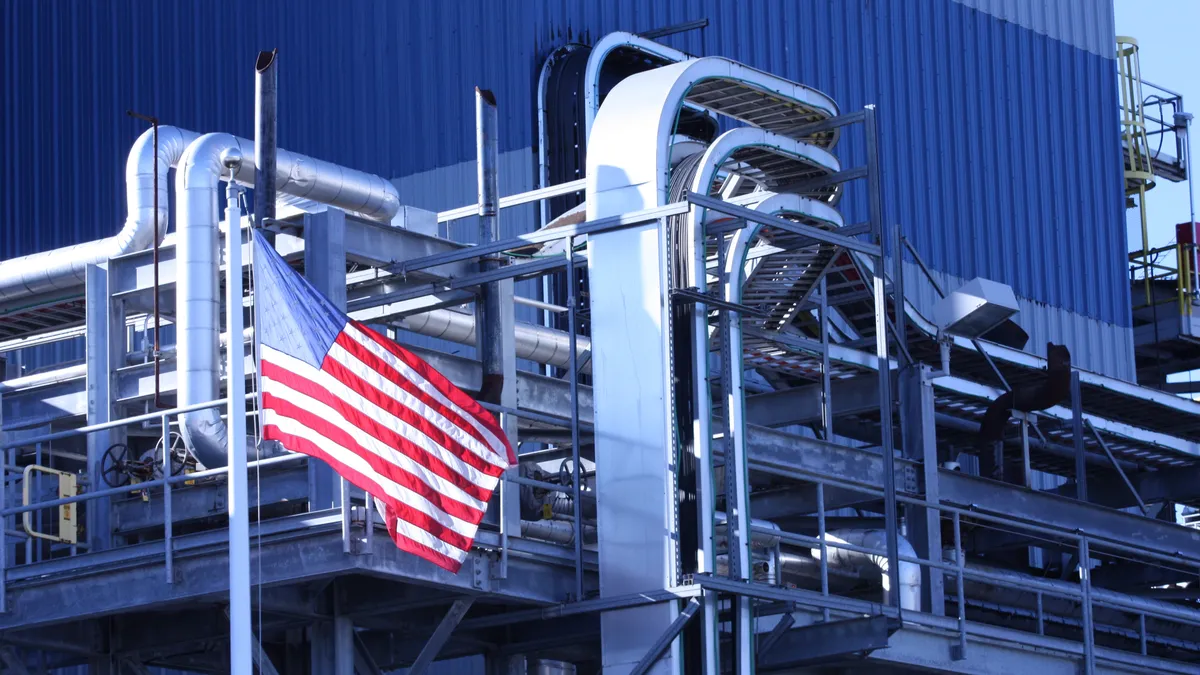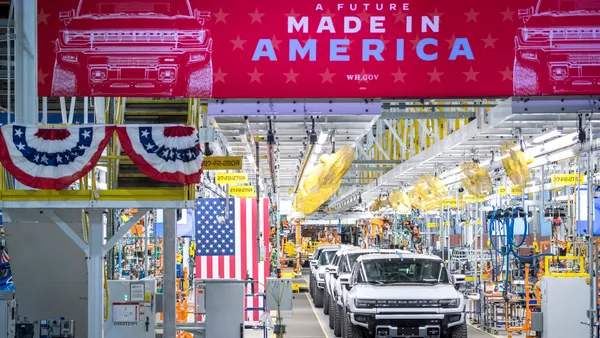Dive Brief:
- Biomanufacturing startup Liberation Labs selected a site in Richmond, Indiana, to house its $115 million precision fermentation plant, as it works to meet rising demand from consumer packaged goods and ingredient companies.
- Precision fermentation uses biotechnology to alter microbes, like yeast, to produce proteins or other substances found in eggs, dairy or sweeteners when fermented. The new facility will have fermentation capacity up to 600,000 liters with a dedicated downstream process, according to a news release.
- The contract manufacturer expects to break ground on the facility later this spring and has begun assembling its operations team.
Dive Insight:
More companies are venturing into precise fermentation for its ability to produce a range of ingredients without using animals.
Liberation Labs is among several manufacturers aiming to grow the U.S.'s precision fermentation production capacity as demand rises. Co-founder and CEO Mark Warner noted in a November interview that a lack of U.S.-based fermentation facilities has forced food tech companies to rely on research facilities in Europe to scale their operations.
Warner’s startup is now trying to change that dynamic, with plans to construct six precision fermentation manufacturing facilities worldwide, according to Food Dive.
Liberation Labs chose Indiana as the location for its first U.S. facility with accessibility in mind. The 36-acre site is located near Interstate 70, the Norfolk Southern mainline and three regional airports for shipping, according to the release. The company also noted the area’s available talent pool and proximity to carbon-feedstocks.
“The three things a biomanufacturing facility like ours needs are sugar, power and people — and Richmond, Indiana has them all,” Warner said in a statement.
To aid in the establishment of the plant, Liberation Labs also recently received several state funding awards including up to $780,000 in performance-based tax credits and up to $50,000 in training grants from the Indiana Economic Development Corporation.
Biomanufacturing is getting more attention at the federal level as well. In September, President Joe Biden signed an executive order intended to boost biotechnology and biomanufacturing in the U.S., making it a priority across several industries, including food.












